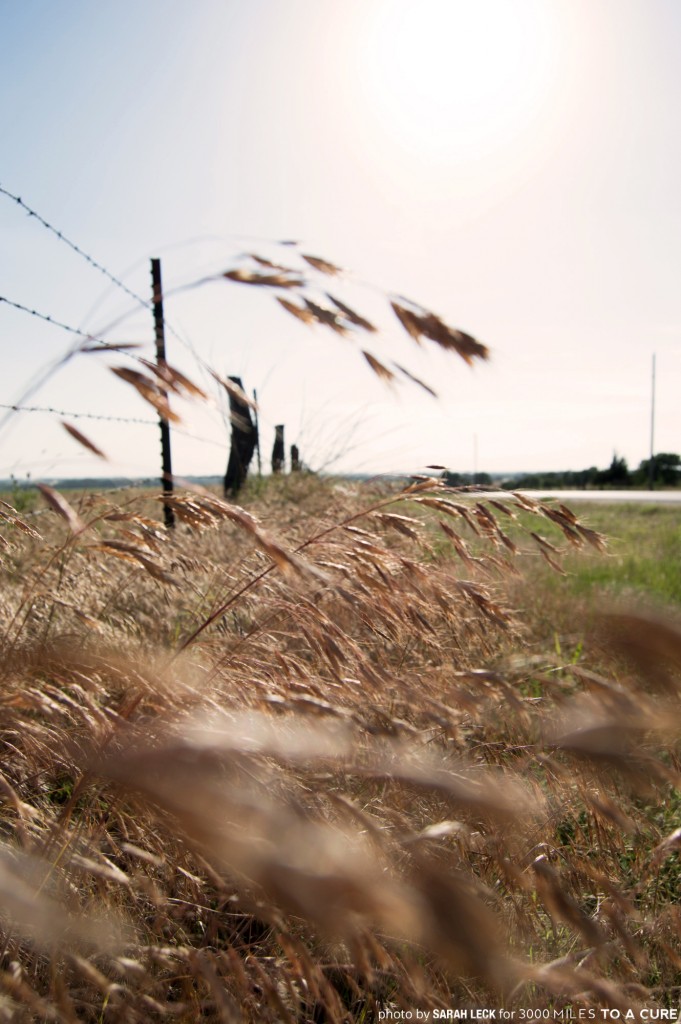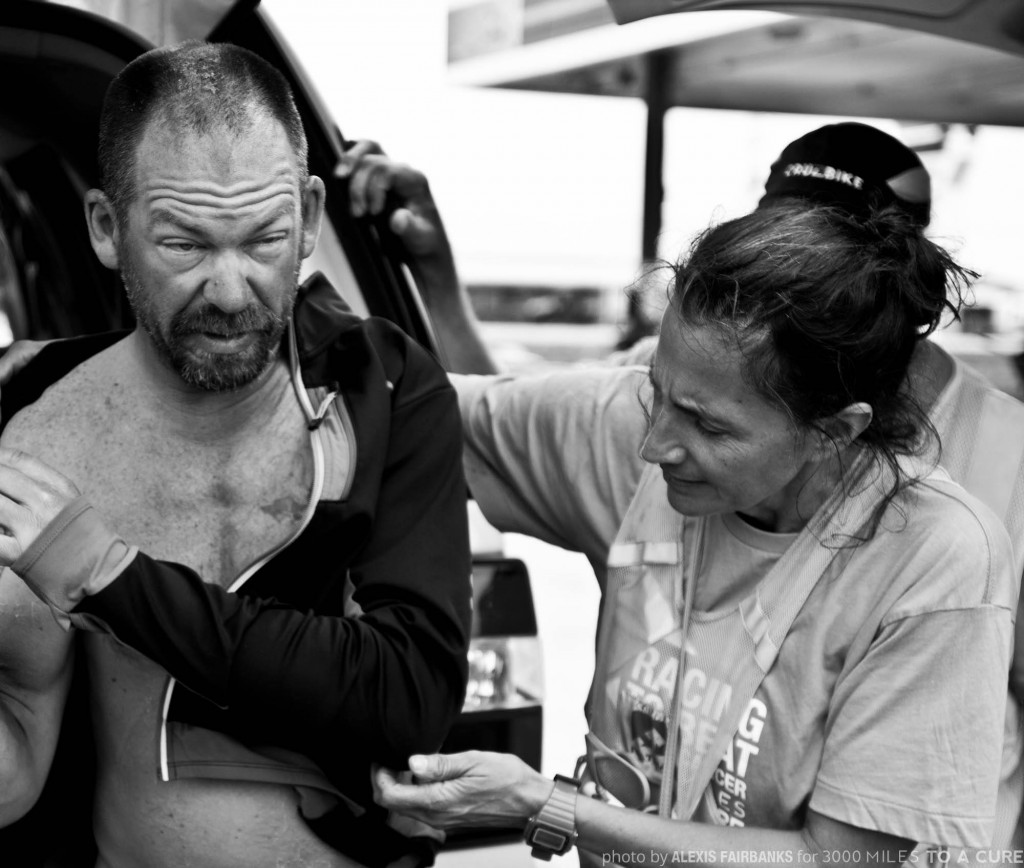I drove the 3000 Miles to a Cure media crew SUV up to the concrete booth and commenced an (ultimately futile) search for loose change to pay the Kansas highway toll–moving with that frenzied urgency that often strikes me when I reach the front of lines.
It’s an urgency spawned from social fear: the fear of incurring the disapproval of the drivers, coffee buyers, or grocery shoppers behind me in line by slowing them down. I bet you’ve felt a similar fear, at one time or another. After all, we humans are deeply social creatures, concerned with how others view us even when in the relative safety and anonymity of our cars.
So when the tollbooth attendant began commenting on the 3000 Miles to a Cure decals which covered our car, I answered only tersely, trying to hurry the conversation–and the change for my five dollar bill–along.
Finally, the toll light turned green. I accelerated away, stress dissolving as I glided into the right lane and set the cruise control.
I think we can often be like me, a toll-payer, in the way we give charity. We hear or see a call to give, feel a tinge of guilt, social pressure, or emotion, then give some money–alleviating the stress and allowing us to continue on our way. The entire process, from hearing the need for money to clicking “confirm donation,” takes place quickly and almost thoughtlessly.
This toll-payer mentality allows us to calm our consciences without embracing feelings of empathy and love–or engaging our rational minds farther than what is needed for a quick assessment of the charity’s trustworthiness. Cognition takes effort, and emotions can be uncomfortable and draining, so we avoid them.
In so doing, though, we miss out on an opportunity to engage emotionally with our chosen charities’ stories, and think critically about their operating procedures and goals, stretching our minds and souls–and growing in our aptitude to think and emote positively.
“So what?” you might say, “I give charity to make a difference in the world, not in myself.”
And I get that. We don’t always have the time or energy to engage in self-improvement–and it is better to give quickly and coldly than to not give at all. When we choose to do that, however, we run the risk of limiting not only our own growth, but also our gifts’ efficacy. Charities are operated by human beings, who as a general rule are motivated to a large degree by social concerns. The engaged and expectant gaze of donors surely improves their motivation to spend donated money honestly and effectively.
As you follow Rob White’s Race Across America attempt this year with 3000 Miles to a Cure, then, I encourage you to invest your emotions, reason, and money.
But then stick around for a while and
Watch as Rob endures extremes of weather, aching limbs, and sleep-deprivation while racing across the country.
Let yourself be inspired, saddened, or both.
Read about 3000 Miles to a Cure’s goals, principles, and founding–and learn how donations to the charity are spent to advance knowledge of brain tumor genetic profiles, helping healthcare providers better know, and thus treat, brain cancer.
Get comfortable with the stress it will take to do these things–if you’re like me, you spend enough time in cruise control, anyway.


